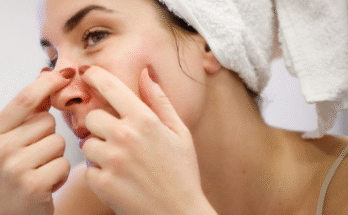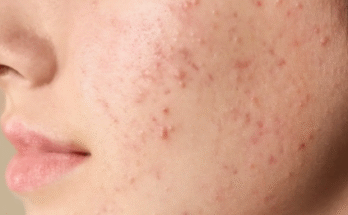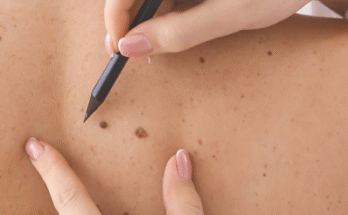Many people believe acne is something that disappears after the teenage years, but the truth is that many adults continue to experience breakouts well into their 20s. For some, this can be a surprising and frustrating reality, especially after expecting clearer skin with age. The good news is that adult acne is common and manageable with the right care, patience, and understanding of how skin changes during early adulthood.
When you’re in your 20s, your lifestyle, hormones, stress levels, and skincare habits all play a role in how your skin behaves. Some adults experience occasional breakouts around certain times of the month, while others notice persistent spots that seem to never fade completely. Understanding what triggers acne and how to care for your skin gently and consistently can make a big difference in achieving a clearer complexion over time.
One of the main reasons acne can continue into adulthood is hormone fluctuation. Even after the teenage years, hormone levels can shift due to stress, menstrual cycles, birth control changes, or lifestyle habits. These fluctuations can lead to excess oil production, which in turn can clog pores and create the perfect environment for acne-causing bacteria to thrive. Unlike teenage acne, which often appears on the forehead and nose, adult acne is more likely to show up around the lower face, jawline, and chin area.
Another common factor behind adult acne is stress. In your 20s, you may be juggling studies, work, relationships, and future plans. Stress increases cortisol, a hormone that can make your skin produce more oil. Learning to manage stress not only benefits your overall well-being but can also help your skin stay more balanced. Simple habits like taking short breaks, spending time outdoors, practicing deep breathing, or getting enough rest can contribute to calmer skin.
Diet also plays a subtle yet important role in acne management. While no single food directly causes acne, certain eating patterns may affect your skin’s balance. Diets high in refined sugars, dairy, or processed foods may sometimes worsen breakouts in people who are sensitive to them. On the other hand, choosing foods rich in antioxidants, fiber, and omega-3 fatty acids—such as vegetables, fruits, whole grains, and fish—can support overall skin health. Drinking enough water throughout the day helps keep the skin hydrated and supports the body’s natural detoxification process.
When it comes to daily skincare, simplicity and consistency are key. Many adults make the mistake of over-cleansing or using products that are too harsh, which can strip the skin of its natural oils and lead to irritation. A gentle cleanser used twice a day is usually enough to remove dirt and oil buildup. Look for cleansers labeled as non-comedogenic, meaning they are less likely to clog pores. Following cleansing, a lightweight moisturizer helps keep the skin barrier healthy. Even oily or acne-prone skin needs moisture; skipping it can actually cause the skin to produce more oil in response.
For targeted acne care, consider products that contain ingredients like salicylic acid or benzoyl peroxide, which help reduce oil and clear pores. Niacinamide and retinol are also popular among adults because they not only help with breakouts but also improve skin texture and tone. When introducing new products, it’s best to start slowly and observe how your skin reacts. Sometimes, less is more—using too many active ingredients at once can lead to dryness or redness.
Sun protection is another crucial part of adult acne care. Many people with acne-prone skin skip sunscreen, fearing it might cause more breakouts, but sun exposure can actually darken acne marks and slow healing. Modern sunscreens are available in lightweight, non-greasy formulas designed for sensitive or oily skin. Using sunscreen daily not only protects against UV damage but also helps maintain an even skin tone over time.
Aside from products, lifestyle habits make a significant difference. Keeping pillowcases, makeup brushes, and phone screens clean can prevent bacteria from transferring to your skin. Avoid touching your face frequently, as this can spread oils and dirt that clog pores. It’s also helpful to give your skin time to breathe by occasionally skipping heavy makeup or choosing mineral-based options that let your skin rest.
Sleep quality is another piece of the puzzle. During sleep, your body repairs itself, including your skin. Lack of rest can lead to increased stress hormones and inflammation, which may worsen acne. A consistent sleep routine—aiming for seven to eight hours each night—can help the skin recover and maintain a more balanced appearance.
In your 20s, you may also begin to notice that your skin’s healing process is slower than it was during adolescence. Marks or discoloration may linger longer after pimples fade. This is where patience becomes important. Consistent use of gentle exfoliants, along with daily sunscreen, can help fade these marks gradually. Exfoliation encourages cell turnover, but it should be done carefully, no more than a few times per week, to avoid over-sensitizing the skin.
If breakouts persist despite consistent care, it may be worth consulting a dermatologist. A professional can help identify whether your acne is related to hormones, lifestyle, or another underlying cause. They can recommend suitable treatments or topical medications tailored to your skin type and condition. Seeking expert advice can save time and frustration, especially when over-the-counter options aren’t providing the desired results.
Above all, it’s important to approach acne care with kindness toward yourself. Many adults feel discouraged when dealing with skin imperfections, especially in an age of social media filters and flawless images. Remember that having acne doesn’t reflect poor hygiene or lack of effort—it’s simply a common skin condition that affects millions of adults worldwide. Building a consistent routine and giving it time to work can gradually bring improvement and confidence.
Your 20s are a period of growth, exploration, and self-discovery. Taking care of your skin is part of that process, but it should never become a source of stress or self-criticism. Healthy skin isn’t defined by perfection; it’s about balance, comfort, and care that supports your natural glow. By being mindful of your habits, choosing products thoughtfully, and nurturing your overall well-being, you can create a foundation for skin health that lasts well beyond your 20s.
Acne care in adulthood is a journey, not a quick fix. Every small, consistent step—whether it’s washing your face gently, drinking more water, or getting a good night’s sleep—contributes to your skin’s long-term resilience. With patience and the right approach, clear and confident skin can become a natural outcome of caring for yourself inside and out.


